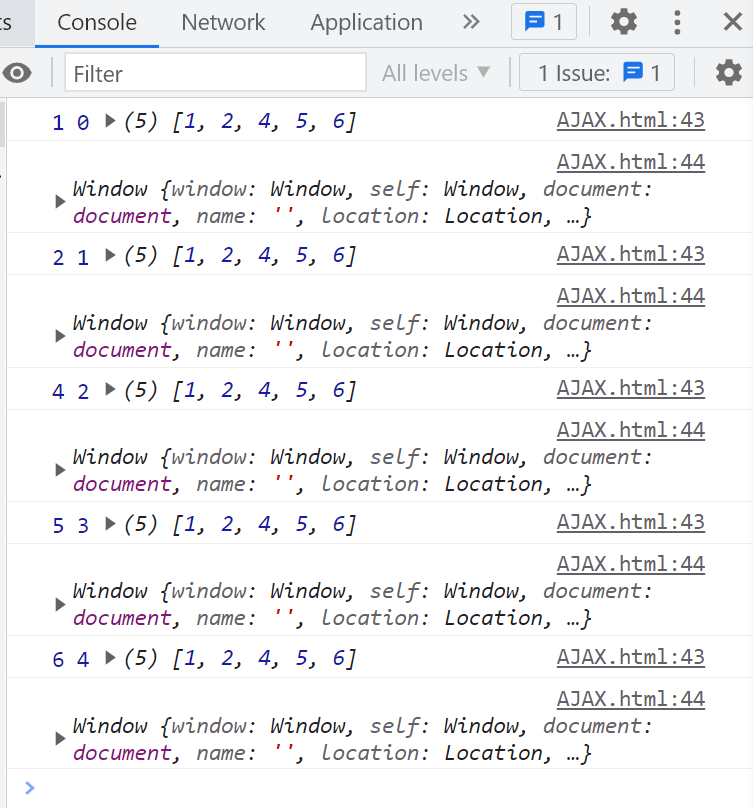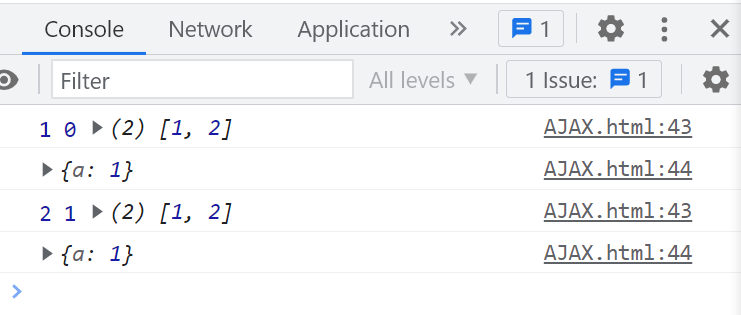Array.prototype.findIndex
findIndex 方法
findIndex 方法返回数组中第一个满足提供的测试函数的元素的索引。否则返回 -1。
Array.prototype.findIndex() - JavaScript | MDN
使用
findIndex 方法用于查找数组中第一个满足条件的元素的索引。如果数组为空,返回 -1。
const numbers = [1, 2, 3, 4, 5];
const index = numbers.findIndex((item) => item > 2);
console.log(index); // 输出: 2
稀疏数组
findIndex 方法会遍历稀疏数组中的所有索引,包括空位,并将空位视为 undefined。
const sparseArray = [, , , , , , , 2];
const index = sparseArray.findIndex(function (item) {
console.log(item); // 输出: undefined*7, 2
return item === 2;
});
// 2 的下标是 7
console.log(index); // 输出: 7
仅遍历有值的数组方法
以下数组方法不会遍历稀疏数组中的空位:
some、every、forEach、map、filter、reduce
参数
第一个参数
回调函数接收三个参数:
- 当前遍历的元素
- 当前元素的下标
- 源数组
回调函数的返回值为布尔值。当回调函数在某一次调用后返回 true,findIndex 方法将停止遍历并返回当前元素的下标。
const numbers = [1, 2, 4, 5, 6];
const index = numbers.findIndex(function (item, index, array) {
console.log(item, index, array);
console.log(this);
});

第二个参数
- 更改回调函数内部的
this指向,使其指向第二个参数。 - 在严格模式下,如果未提供第二个参数,
this为undefined,与严格模式的规定保持一致。
const numbers = [1, 2];
const index = numbers.findIndex(
function (item, index, array) {
console.log(item, index, array);
console.log(this);
},
{ a: 1 }
);

findIndex 实现
以下是一个自定义实现 findIndex 方法的示例,命名为 myFindIndex。通过这个示例,可以更深入地理解 findIndex 方法的内部工作机制。
Array.prototype.myFindIndex = function (callback, thisArg) {
// 检查 this 是否为 null 或 undefined
if (this == null) {
throw new TypeError("'this' 为 null 或未定义");
}
// 检查回调函数是否为函数
if (typeof callback !== 'function') {
throw new TypeError('回调函数必须是函数类型');
}
const array = Object(this);
const length = array.length >>> 0;
const context = thisArg;
for (let index = 0; index < length; index++) {
const currentValue = array[index];
if (callback.call(context, currentValue, index, array)) {
return index;
}
}
return -1;
};
// 测试
const numbers = [1, 2, 4, 5];
const index = numbers.myFindIndex(
function (item, index, array) {
console.log(this);
},
{ a: 1 }
);
console.log(index); // 输出: -1
在这个实现中,我扩展了 Array.prototype 添加了一个 myFindIndex 方法。该方法首先验证 this 是否为有效的数组对象,然后迭代数组中的元素,调用回调函数并返回第一个满足条件的元素的下标。如果没有满足条件的元素,返回 -1。
通过这个示例,可以更好地理解 findIndex 方法的工作原理,并在实际开发中根据需要自定义数组方法。